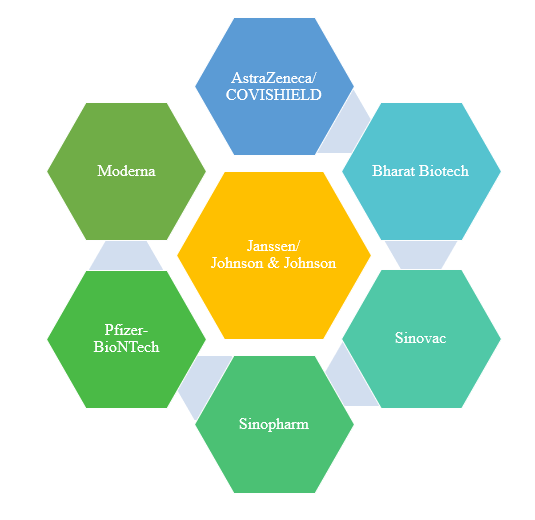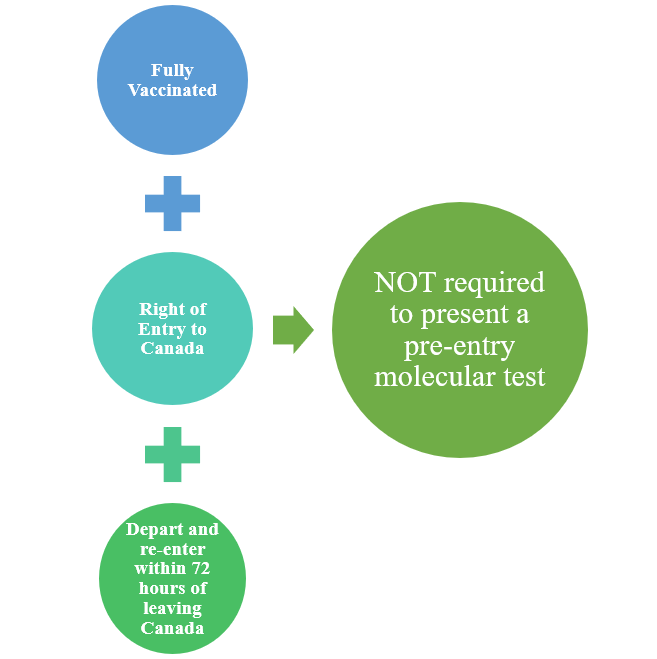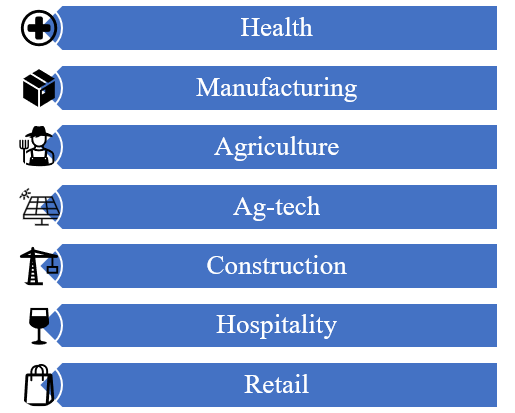Due to the unprecedented nature of COVID-19, immigration throughout 2021 continued to experience disruption. Now that we are in 2022, here is a summary of the immigration changes expected to take place this year.
2021-2023 Multi-Year Levels Immigration Plan
The plan for the Canada’s immigration sector in 2022 was set out in a Multi-Year Levels Immigration Plan for the years 2021-2023. It is intended to assist the Canadian economy to recover from the effects of COVID-19.
In 2022, it is expected that the Canadian Government will welcome 411,000 permanent residents.
Approved COVID-19 Vaccines from 30 November 2021
From 30 November 2021, the Public Health Agency of Canada announced that three additional vaccines would be added to the approved COVID-19 Vaccine List for the purposes of travel to and within Canada. The three additional vaccines reflect the World Health Organization’s Emergency Use Listing and are: Sinopharm, Sinovac and COAXIN.

Requirement for Pre-Entry Molecular Test Removed in Specific Circumstances
From 30 November 2021, fully vaccinated individuals who have a right of entry to Canada and depart and re-enter within 72 hours of leaving Canada are not required to present a pre-entry molecular test. This is an exemption that is applicable only for travel that originates in Canada. Individuals must be able to demonstrate that they have only been outside of Canada for 72 hours.


Molecular Tests No Longer Accepted as an Alternative to Vaccination
From 30 November 2021, vaccinations are REQUIRED for travel within and out of Canada. Previously, a valid COVID-19 molecular test was accepted as an alternative to vaccination however this is no longer the case unless travelers can demonstrate they fit a limited exception i.e., medical exemption.
Upcoming Changes to Current Exempt Travelers from 15 January 2022
From 15 January 2022, the Public Health Agency of Canada have announced changes to specific groups of travellers who are currently exempt various entry requirements. The following groups of travellers affected are:
- Individuals travelling to reunite with family
- International students who are 18 years or older
- Professional and amateur athletes
- Individuals with a valid work permit, including temporary foreign workers (excluding agriculture and food processing)
- Essential service providers (including truck drivers)
These groups will be required to be fully vaccinated with an approved vaccine to enter Canada.
After 15 January 2022, non-exempt unvaccinated or partially vaccinated foreign nationals will not be permitted to enter Canada. If an individual is unvaccinated or partially vaccinated, they will only be permitted to enter Canada if they qualify under limited exceptions including:
- Agricultural and food processing workers
- Marine crew members
- Individuals entering on compassionate grounds
- New permanent residents
- Resettling refugees
- Some children under the age of 18
If you are an exempt unvaccinated or partially vaccinated person entering Canada, you will continue to be subject to quarantine, testing and other entry requirements.
Upcoming Changes to the National Occupation Classification (NOC)
The NOC is the national system in Canada that is used to classify and describe different occupations. This system is used for immigration purposes. On 21 September 2021, the new NOC 2021 was introduced. This is a revised dataset that seeks to provide updates and improvements to the current NOC system. Although a definitive date is yet to be announced, it is expected that NOC 2021 will be implemented in late 2022.
What are the new changes reflected in NOC 2021?
- Skill levels are replaced with TEER (Training, Education, Experience and Responsibilities) categories
- Previously there were 4 skill levels, this has been replaced with 6 TEER categories
- NOC 2021 now contains 516 occupations compared with the previous 500 occupations
New Migration Consultant Regulation: College of Immigration and Citizenship Consultants
On 23 November 2021, the Minister for Immigration, Refugees and Citizenship announced the official opening of the College of Immigration and Citizenship Consultants, a new regulatory body of immigration and citizenship consultants in Canada. The College oversees the conduct of consultants to ensure that:
- All paid consultants are licensed to work with Immigration, Refugees and Citizenship Canada by the College
- Regulation of immigration and citizenship consults under the College of Immigration and Citizenship Consultants Act
- Powers and tools are used to investigate professional misconduct and take enforcement and disciplinary action
- Consultants adhere to continuing professional development requirements and an annual practice assessment
The College differs from the previous regulator as it has several new powers and authorities to ensure professional standards and compliance.
When seeking immigration or citizenship advice, you can check whether your consultant is licensed by the College by visiting the College’s website to confirm your consultant appears as a licensee in good standing of the College.
Saskatchewan: Saskatchewan Immigrant Nominee Program (SINP) New Pilot Program
On 25 November 2021, the Government of Saskatchewan announced that the SINP Program would expand to include a new pilot program that is intended to address employment positions difficult to fill throughout the province.
This New Pilot Program is specific to low and entry level positions that are important for the continued operation and growth of various businesses in the sectors. The employment sectors that have the highest need for skilled labour are:

To be eligible to apply for the SINP New Pilot Program you must:
- Have a full time offer of employment
- Have SINP job approval letter for an eligible occupation
- Meet a minimum Canadian Official Language proficiency level
- Meet the minimum educational and work experience requirements – including a tleast one year of work experience in the same occupation as the job offer OR six months work experience in that job in Saskatchewan
Employers participating in the SINP New Pilot Program must:
- Demonstrate their efforts to hire domestically prior to participating in the program
- Demonstrate the need and benefit for their business
- Fulfil requirements relating to providing settlement support for prospective employees
New Brunswick: New Immigration Stream for International Graduates
From 1 April 2022, the New Brunswick Government will commence a new immigration stream for international graduates alongside the Immigration, Refugees and Citizenship Canada body to work to fulfil the labour needs throughout the province.
If you are an INTERNATIONAL STUDENT who has graduated from:
- Atlantic Business College
- Eastern College
- McKenzie College
- Oulton College
And you have studied in one of the 19 specified occupations you may be eligible to apply for the Provincial Nominee Program (PNP). The PNP allows for visa applicants to live and work in the province and provides a pathway to permanent residency.
|
Eligible Occupations |
|||
| Social and Community Service Workers | Early Childhood Educators and Assistants | Educational Assistants | Healthcare Aides |
| Home Support Workers | Licensed Practical Nurses | Paramedics and Related Occupations | Medical Laboratory Technologists |
| Medical Laboratory Technicians and Pathologists’ Assistants | Medical Administrative Assistants | Computer Programmers and Interactive Media Developers | Web Designers and Developers |
| Computer Network Technician | User Support Technicians | Accounting Technicians and Bookkeepers | Payroll Clerks |
| Shippers and Receivers | Supply Chain and Logistics and Supervisors | Production Logistics Co-Ordinators | |
Atlantic Immigration Pilot
From 1 January 2022, the Atlantic Immigration Program officially opened and is accepting applications. This is a new permanent program based on the Atlantic Immigration Pilot that commenced in 2017. This program seeks to attract skilled migrants and address labour shortages throughout the Atlantic provinces. There are a minimum of 6,000 places available to eligible skilled migrants each year.
Interested candidates who have a valid endorsement can submit an application for permanent residence through the Atlantic Immigration Program from 6 March 2022.

Adriana Chipman
Juris Doctor (University of Melbourne)
Adriana is one of our immigration agent assistants. She graduated from the Juris Doctor at the University of Melbourne at the end of 2020. She is currently completing her Graduate Diploma in Practical Legal Training at Leo Cussen Centre for Law in Melbourne, Victoria.
With her experience in volunteering for not-for-profit organisations in addition to conducting legal research, drafting documents, and engaging with clients
Adriana works to assist our team in any and all administration matters relating toimmigration.






Registering as a Midwife in New Zealand (Non-AU/NZ Trained Applicants)
Registering as a Nurse in New Zealand (Non-AU/NZ Trained Applicants)
Upcoming New Zealand Immigration Changes 2025
Direct pathway to Australian Citizenship for New Zealanders
Dual Citizenship in Australia